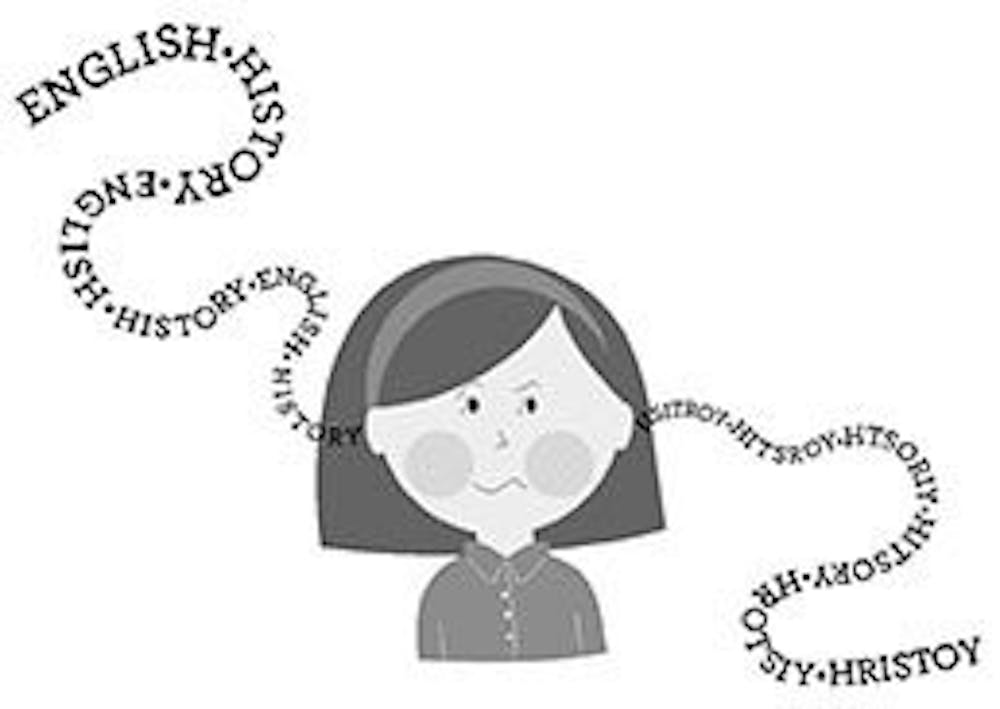In 1994, the Alabama Council of Higher Education passed a statewide articulation agreement, which built partnerships between community colleges and universities, requiring all core credits transferred from a two-year college to fulfill requirements at four-year colleges.
This agreement allows students to easily transfer between colleges without losing credit hours.
In 2010, Auburn University rolled around to changing its core curriculum model to meet this standard.
Before the revised model, students were required to take two literature courses and two history courses. Afterward, students were required to take either two literatures or a single history or vice versa.
Presented with this option, students have overwhelmingly decided to opt out of taking two literature courses and instead take two history courses. This change resulted in a decline in the number of students enrolled in English courses and hampered the department's ability to fill classes.
Now, those educators fear for their jobs, according to various English instructors.
Less classes mean less instructors. With their year-long employee contracts expiring soon, instructors are left in a state of suspense on whether or not they will be asked to return. This situation, coupled with a tenure track inaccessible to most instructors, recently caused many to seek employment elsewhere or simply put their collegiate careers on hold.
However, Jeremy Downes, chair for the department of English, stated these instructors' jobs are relatively safe, thanks to those who have already found jobs elsewhere.
Yet, the English department still faces an issue: how to fill their classes? The solution: cut back on classes.
We disagree.
The process behind reading comprehension can be found in the fundamentals of our education. It makes students worldlier and establishes intangible connections among the past, the present and the distant.
Core history courses seat approximately 200 students. As a result, students easily get away with not paying attention in class by texting, snoozing or daydreaming. History instructors are keen on this trend and enforce harsh penalties on students caught not paying attention, resulting in students viewing the professor as a ruthless despot rather than someone who is approachable.
Additionally, these professors generally give multiple-choice exams, encouraging students to adopt "stuff and flush" study habits. We think this exam format is not conducive to learning or to a collegiate environment.
Now, that's not to say we don't appreciate the history department. We probably wouldn't even know what despot means if not for them. History serves as a vital part of creating a well-rounded curriculum. We cannot plan for the future without understanding the pitfalls of the past.
But we would like to make a case for literature courses.
We understand translating thoughts onto a page does not come naturally for everyone. However, this skill can be learned though practice and is applicable in the professional world, regardless of job or major. The last thing you want is for an employer to think you read and write on a 7th grade level because you sent out a poor email.
Literature classes also promote discussion during class, aiding in comprehension and promoting of analytical skills. You just don't get that in a history lecture, where information is crammed in bulk into your ear.
We believe by reducing the history core classes' maximum capacity, students will inevitably be rerouted into literature. This change will reduce burdens on both department and instructors. It's mutually beneficial. It allows for potential of better rapport with students and history instructors while also reducing the workload on their graduate teaching assistants. To top it off, English department instructors will no longer face the impending doom of potentially losing their jobs at the esteemed Auburn University.
We understand this might be an oversimplification of a complex issue, but as a journalistic body, you can't fault us for our commitment to the written word.
Do you like this story? The Plainsman doesn't accept money from tuition or student fees, and we don't charge a subscription fee. But you can donate to support The Plainsman.





